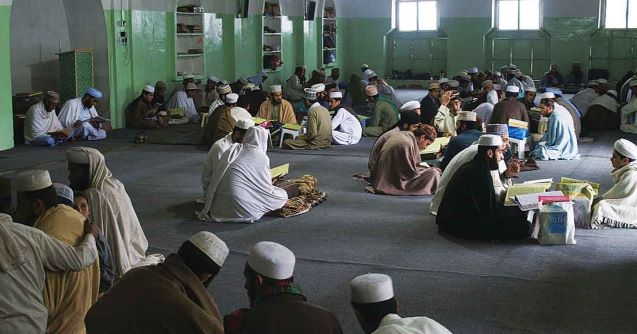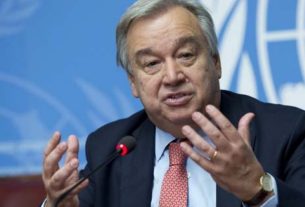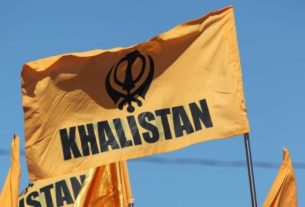The recent arrests of Pakistani nationals in Greece over planned anti-Semitic attacks and the dismantling of the Gabar Group, a well-structured terrorist cell led by young Pakistanis, in Italy last year, have raised concerns about Pakistan’s role in spreading radicalization and operating sleeper cells in Europe.
The Greek police arrested two young Pakistanis of Iranian origin over planned anti-Semitic attacks in central Athens, and Israel accused Tehran of being behind the plot. The Mossad helped untangle the intelligence of the network, its operational methods, and ties to Iran. The mastermind of the cell was a Pakistani who lives outside Europe and coordinates terror activities in other countries.
In September 2020, two people were randomly stabbed by Zaheer Hassan Mahmood, a young Pakistani man who had spoken of dreams and premonitions. At the time, the West had largely attributed the violence to lone wolves and cultural differences. However, subsequent investigation revealed that Mahmood was part of a well-structured terrorist cell known as the Gabar Group. This cell was made up of young Pakistanis living in various European countries, primarily Italy. In June, 14 Pakistani citizens living in Italy were arrested by the Genoa police, intelligence, and counter-terrorism department in what was called a “maxi-operation”. The operation involved coordination between the Spanish Comisaria General de Informacion and the French counter-terrorism wing under the European Counter-Terrorism Center. The individuals were charged with criminal association with the aim of international terrorism.
Months before the attack, some of the arrested individuals had taken a selfie with Mahmood under the Eiffel Tower and posted it on social media with the caption “Be patient, we’ll be back soon … see you on the battlefields”. The Gabar Group was led and coordinated by Yaseen Tahir and Nadeem Raan, both Pakistani nationals. Nadeem, also known as “The Peer”, was the leader of the group and the driving force behind its initiatives. He was jailed in France, but still had a smartphone and remained in constant contact with Yaseen. Yaseen, who had previously been arrested for smuggling illegal immigrants from Italy to France, was the “brains” of the group.
According to Italian police, all members of the group were actively spreading violent religious doctrines and had a strong anti-Western stance. They were in full adherence to the line of preachers who incite the killing of those who commit blasphemy. The Gabar Group was also found to be practicing rehearsals of stabbing and slaughtering during their meetings. Intelligence sources suggest that the Gabar Group is ideologically and perhaps even practically linked to the Tehreek-e-Labbaik Pakistan, a transnational network of jihad apologists with strong roots in Pakistan and the Pakistani establishment. This reveals a wider, coordinated effort with money, ideological, and physical training and support involved in the spread of terrorism.
Pakistan has long been accused of providing safe havens and financial and logistical support to terrorist groups, including the Taliban, al-Qaeda, and the Haqqani network. The country has also been criticized for not taking enough action against Islamic extremists and allowing them to propagate their ideologies and carry out terrorist activities.
The political use of Islam by the State has promoted an aggressive competition for official patronage within various sects. Pakistan’s government, society, and military are at ideological crossroads, and this has affected the country negatively in all areas that define a functional modern state.
Military dictatorships in Pakistan have depended on religious parties to gain legitimacy from the masses. Unfortunately, the transition to democracy in Pakistan after long periods of military rule brought these religious parties to power with a confrontational agenda against the West. Most of these groups have criticized the West as anti-Islam, responsible for the exploitation of Muslims. Successive governments have relied on these groups to ensure their success in the parliament. Weak political governments have been unable to initiate any policy measures against the radicals, for fear of retaliation, and fear that the religious parties would exploit the situation against them.
Further, the deteriorating economic conditions, unemployment, and lack of freedom of expression in society are all factors responsible for the growing number of radicals in Pakistan. With the patronage of Pakistani army, many of the extremist religious groups have become financially independent and all-powerful. With the active support of the government, they were able to circumvent the international sanctions and generate funds for their radicalisation activities. With young population in Pakistan completely discontented with the State due to the lack of opportunities, they continue to fill the ranks of the jihadi organizations. When they travel out of -Pakistan, they export the same to the West and act a sleeper-cells in Europe.
The rise of the militant Islamist Jamaat-e-Islami under Sayyid Abul Ala Maudidi led to an increase in “Indophobia” or anti-Indian sentiment in Pakistan. Radical Islamist leaders in Pakistan have advocated violence against India for decades, while Pakistan supported and nurtured the “Mujaheedins”. The Sustainable Development Policy Institute conducted a study on ideologically driven school textbooks and found that since the 1970s, Pakistani textbooks have systematically promoted hatred towards India and Hindus. The ideology of Pakistan has been used to generate this hatred, with the existence of Pakistan defined solely in relation to Hindus. Therefore, Hindus are portrayed in as negative a light as possible to uphold the ideology of Pakistan.
Pakistan’s geographical location and its role as a frontline state in the US-led war against terror have made it a breeding ground for terrorists. The Federally Administered Tribal Areas in the northwest and the Federally Administered Northern Areas in the northeast have turned into sanctuaries for sectarian and international terrorists or non-state actors and centers of arms and drug trade. The political disenfranchisement and total neglect of these regions have contributed to the rise of militancy in the society.
The threat of terrorism from Pakistan to the Western world is real and should be taken seriously. The radicalization of youth in urban areas, the lack of freedom of expression, and the deteriorating economic conditions are factors that contribute to the rise of terrorism in Pakistan. The international community must keep pressure on Pakistan to take more concrete and consistent measures to combat terrorism and extremism, including cracking down on extremist groups and their funding sources.





